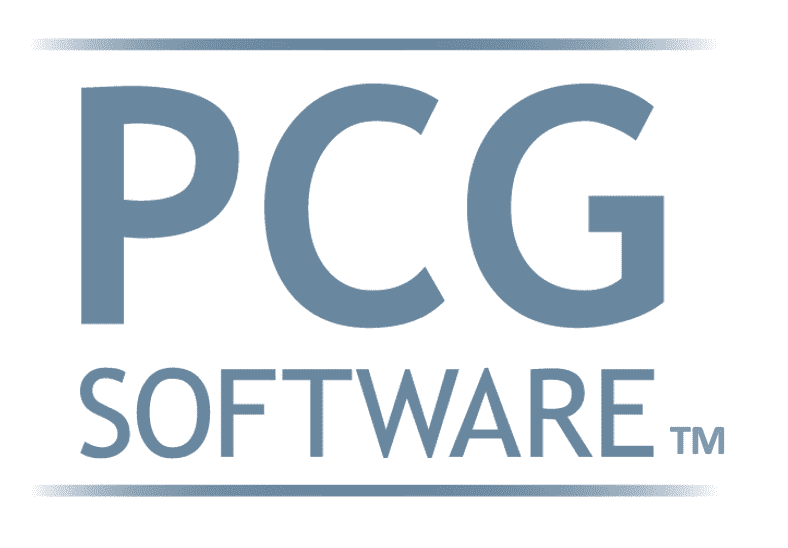DOGE Begins to Audit CMS and US Healthcare
What is this article about?
Consider this page and article your real-time update on DOGE’s efforts to combat fraud, waste, abuse, and overspending in US healthcare. We first begin with background on why DOGE targets Medicare, and then we will provide chronological updates in order of most recent events followed by past submissions.
Why is DOGE focusing on Medicare?
Medicare and Medicare Advantage programs have faced significant challenges related to fraud and overpayments between 2020 and 2025, contributing to financial instability in the U.S. healthcare system.
Medicare Advantage Overpayments
A 2024 analysis by the Center for American Progress estimated that Medicare Advantage plans were overpaid by 22% to 39%, amounting to between $83 billion and $127 billion in 2024 alone. These overpayments were primarily due to practices such as "upcoding," where insurers documented more severe diagnoses than warranted, and selection bias, enrolling healthier individuals while receiving payments adjusted for sicker populations.
Questionable Home Visit Diagnoses
In 2023, the Office of Inspector General (OIG) reported that Medicare paid approximately $4.2 billion to private insurers for diagnoses obtained through insurer-initiated home visits. These visits often resulted in diagnoses without subsequent treatment, raising concerns about the validity of these claims and suggesting potential exploitation of the payment system.
Fraudulent Activities and Legal Actions
The Department of Justice (DOJ) has actively pursued fraudulent activities within Medicare programs. For instance, in 2024, Teva Pharmaceutical Industries agreed to pay $450 million to resolve allegations that it used patient assistance charities to pay kickbacks for its multiple sclerosis drug and engaged in price-fixing for generic medications. Such legal actions highlight ongoing efforts to combat fraud and recover funds within the Medicare system.
These instances underscore the critical need for enhanced oversight and reforms to address fraud and inefficiencies, thereby ensuring the financial sustainability of Medicare and Medicare Advantage programs.
DME Fraud is Highly Prevalent
Durable Medical Equipment (DME) fraud has been a significant concern within Medicare and Medicare Advantage programs. A notable example is the case of The Scooter Store, once a prominent provider of power mobility devices. In 2013, the company faced allegations of overbilling Medicare by as much as $108 million between 2009 and 2012. Investigations revealed that The Scooter Store had persuaded physicians to prescribe power scooters to patients who often did not meet the medical necessity criteria, leading to substantial unnecessary expenditures for Medicare. Following an FBI raid in 2013, the company filed for bankruptcy and ceased operations.
Source: https://en.wikipedia.org/wiki/The_Scooter_Store?utm_source=chatgpt.com
In another instance, in 2024, Christopher Vehovec from Miami Beach, Florida, pleaded guilty to his involvement in a scheme that solicited and received kickbacks in return for supplying DME companies with completed doctors' orders for medically unnecessary equipment, such as orthotic braces. These orders were acquired through telemedicine services and were subsequently billed fraudulently to Medicare and other healthcare programs, leading to losses of at least $4.2 million.
These cases illustrate the various methods employed in DME-related fraud, including billing for unnecessary equipment, falsifying medical necessity documentation, and engaging in kickback arrangements. These fraudulent activities result in significant financial losses for Medicare and undermine the integrity of healthcare delivery systems.
January 2025: What Impacts could DOGE have on Medicare?
The Department of Government Efficiency (DOGE), led by Elon Musk, has recently intensified its focus on the Centers for Medicare & Medicaid Services (CMS) to identify and eliminate fraud and waste within the system. CMS, responsible for administering health coverage to over 160 million Americans through programs like Medicare, Medicaid, and the Children's Health Insurance Program, manages substantial federal expenditures, making it a prime target for efficiency improvements. Two senior CMS officials, Kim Brandt and John Brooks, have been appointed to collaborate with DOGE, ensuring appropriate access to CMS systems and technology. Their efforts are concentrated on scrutinizing payment and contracting systems to uncover inefficiencies and potential fraudulent activities.
While the initiative aims to streamline operations and reduce unnecessary spending, it has raised significant concerns regarding data privacy and the extent of DOGE's access to sensitive information. Critics argue that granting DOGE broad access to CMS systems could jeopardize millions of beneficiaries' personal health information and sensitive financial data. In response, CMS has clarified that DOGE's access is read-only and does not include personal health information or the Healthcare Integrated General Ledger Accounting System, which contains sensitive financial details.
The collaboration between DOGE and CMS reflects a broader government effort to enhance efficiency and accountability in federal health programs. For health plans, Managed Service Organizations (MSOs), Independent Practice Associations (IPAs), Medicare Advantage plans, and healthcare C-suite investors, this development signals a potential shift toward more stringent oversight and resource allocation within CMS. Staying informed about these changes is crucial, as they may influence the healthcare sector's operational strategies, compliance requirements, and investment decisions.
If DOGE’s initiative successfully identifies inefficiencies, fraud, and administrative waste within Medicare and Medicaid, the downstream effects could be substantial for physician reimbursement, provider sustainability, value-based care, and overall healthcare spending. Here’s how:
1. Improved Physician Reimbursement Rates & Provider Sustainability
By cutting waste and fraud in CMS programs, recovered funds could be redirected toward increasing physician reimbursement rates, which have historically struggled to keep pace with rising operational costs. Higher reimbursement rates would enhance provider sustainability, particularly for independent practices and those serving high-risk populations under Medicare and Medicaid. This would help mitigate physician burnout, prevent provider consolidation by large hospital systems, and maintain access to care in underserved areas.
2. Strengthening Value-Based Care Initiatives
The alignment of DOGE’s efficiency measures with value-based care models could lead to better distribution of CMS funds. Reducing improper payments and administrative inefficiencies means more resources could be allocated to rewarding providers for quality outcomes rather than volume-based fee-for-service payments. This could accelerate the transition to alternative payment models (APMs), improve care coordination, and enhance patient outcomes while controlling costs.
3. Controlling Healthcare Spending & Preventing Premium Spikes
CMS could curb unnecessary spending by eliminating fraud and administrative waste, potentially preventing annual premium increases for Medicare Advantage and Medicaid Managed Care plans. More efficient spending could stabilize the risk pool, reducing the financial burden on payers and beneficiaries. Health plans and investors would benefit from a more predictable regulatory and financial environment, allowing for sustainable growth in the sector.
Ultimately, if DOGE's efforts lead to actionable improvements, healthcare stakeholders—including MSOs, IPAs, and Medicare Advantage plans—could see a shift toward a more financially sustainable system that rewards efficiency, supports providers, and keeps healthcare costs in check.
DOGE finds Massive CMS Overpayments
- February 18, 2025: DOGE has found that since 2023, the US Government incorrectly paid out Medicare and CMS payments totaling $2.7 Trillion. You can listen to the entire report and briefing here: https://m.economictimes.com/news/international/world-news/elon-musks-doge-panel-uncovers-2-7-trillion-healthcare-fraud-at-war-on-waste-hearing/amp_podcast/118337936.cms. more to come as DOGE findings are revealed
DOGE is trying to Optimize Social Security
DOGE has proposed cutting staffing and redundancies to Social Security Administration (SSA) offices. Offices that are currently targeted as of March 17, 2025, are White Plains NY, Logan; WV Carlsbad CA, Roanoke Rapid NC, Batesville; AR Columbus OH Okemos MI, Nacogdoches, TX, Green Bay, WI, and Las Vegas, NV. DOGE has stated that its technology is outdated and reliant on human speed, and that by upgrading it’s technology it can cut back on close to 7,000 personnel positions and speed up access to benefits and changes. If you are worried about SSA, you contact the White House through email here; White House SSA Email Link. As this story progresses will provide updates under this section of the live blog.
Latest Updates:
Updates on DOGE actions will be added as they are made publicly available. Please bookmark and save this article’s URL for faster future reference.
Our History and Credibility in Reporting this Information:
For over 30 years, PCG Software Inc. has been a leader in AI-powered medical coding solutions, helping Health Plans, MSOs, IPAs, TPAs, and Health Systems save millions annually by reducing costs, fraud, waste, abuse, and improving claims and compliance department efficiencies. Our innovative software solutions include Virtual Examiner® for Payers, VEWS™ for Payers and Billing Software integrations, and iVECoder® for clinics.


